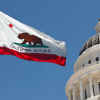School District Policy Prohibiting Active Strikers from Entering School Grounds Violated the First Amendment

February 2018
Number 6
A public school district's policies prohibiting picketing and the display of signs and banners on District property violated the free speech rights of picketers and their supporters, the Ninth Circuit has ruled. (Eagle Point Educ. Ass'n. v. Jackson County School District No. 9 (9th Cir. Jan. 26, 2018, Nos. 15-35704, 15-35972) ___ F.3d ___.)
Background
Anticipating a teacher strike, the Jackson County School District No. 9 in Oregon adopted two resolutions that targeted would-be strikers and their supporters. One resolution prohibited picketing on any property owned or leased by the District, and also prohibited picketers from entering school facilities for any reason. The second disallowed signs and banners in or on facilities leased or owned by the District, unless written approval of the superintendent was obtained in advance.
The policies prevented striking teachers who were also parents from visiting their children at school on any day that they were in the picket line, and a striking teacher was turned away from attending a weekend flower sale at the local high school. A high school senior who drove onto campus with a sign on her windshield that read "I Support D9 Teachers" was prohibited from parking in the school parking lot, while several students were told not to come to school for a day after they voiced their support of the striking teachers on Facebook.
The union, a union member, and a student sued the District alleging that the policies violated their free speech rights under the First Amendment and the Oregon Constitution. Judgment was entered in their favor, and the District appealed.
In reviewing the case, the Ninth Circuit considered District facilities and school grounds to be non-public forums, meaning speech on the property could be restricted so long as the restrictions were reasonable and viewpoint neutral. But the court held that the District's policies were not viewpoint neutral, adding that they were directly aimed at stifling disagreement with the District's position on the strike. The court noted that the District made it known that they wanted to avoid sending "a garbled message to parents and taxpayers by allowing striking teachers access to school property to picket, chant, and display signs and banners."
The District argued that the policies were reasonably necessary in order to keep school operating without issue during the strike, but the court disagreed, finding that the District offered no evidence to show that there was any risk of disruption or violence on campus due to potential picketing, signs, or banners. The court also noted that the restrictions were not tailored to address disruption of instructional time.
Takeaways
While this decision does not preclude public school districts from taking action to ensure normal school operations during a strike, it serves as a reminder that any restrictions imposed must be reasonable under the circumstances and must not be aimed at suppressing expressions of disagreement with district positions.
For more information about this ruling or about addressing student and staff free speech rights in general, please contact an attorney at one of our eight offices located statewide. You can also visit our website, follow us on Facebook or Twitter or download our Client News Brief App.
Number 6
A public school district's policies prohibiting picketing and the display of signs and banners on District property violated the free speech rights of picketers and their supporters, the Ninth Circuit has ruled. (Eagle Point Educ. Ass'n. v. Jackson County School District No. 9 (9th Cir. Jan. 26, 2018, Nos. 15-35704, 15-35972) ___ F.3d ___.)
Background
Anticipating a teacher strike, the Jackson County School District No. 9 in Oregon adopted two resolutions that targeted would-be strikers and their supporters. One resolution prohibited picketing on any property owned or leased by the District, and also prohibited picketers from entering school facilities for any reason. The second disallowed signs and banners in or on facilities leased or owned by the District, unless written approval of the superintendent was obtained in advance.
The policies prevented striking teachers who were also parents from visiting their children at school on any day that they were in the picket line, and a striking teacher was turned away from attending a weekend flower sale at the local high school. A high school senior who drove onto campus with a sign on her windshield that read "I Support D9 Teachers" was prohibited from parking in the school parking lot, while several students were told not to come to school for a day after they voiced their support of the striking teachers on Facebook.
The union, a union member, and a student sued the District alleging that the policies violated their free speech rights under the First Amendment and the Oregon Constitution. Judgment was entered in their favor, and the District appealed.
In reviewing the case, the Ninth Circuit considered District facilities and school grounds to be non-public forums, meaning speech on the property could be restricted so long as the restrictions were reasonable and viewpoint neutral. But the court held that the District's policies were not viewpoint neutral, adding that they were directly aimed at stifling disagreement with the District's position on the strike. The court noted that the District made it known that they wanted to avoid sending "a garbled message to parents and taxpayers by allowing striking teachers access to school property to picket, chant, and display signs and banners."
The District argued that the policies were reasonably necessary in order to keep school operating without issue during the strike, but the court disagreed, finding that the District offered no evidence to show that there was any risk of disruption or violence on campus due to potential picketing, signs, or banners. The court also noted that the restrictions were not tailored to address disruption of instructional time.
Takeaways
While this decision does not preclude public school districts from taking action to ensure normal school operations during a strike, it serves as a reminder that any restrictions imposed must be reasonable under the circumstances and must not be aimed at suppressing expressions of disagreement with district positions.
For more information about this ruling or about addressing student and staff free speech rights in general, please contact an attorney at one of our eight offices located statewide. You can also visit our website, follow us on Facebook or Twitter or download our Client News Brief App.
Disclaimer: As the information contained herein is necessarily general, its application to a particular set of facts and circumstances may vary. For this reason, this News Brief does not constitute legal advice. We recommend that you consult with your counsel prior to acting on the information contained herein.






